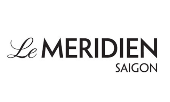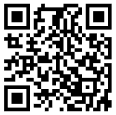MÔ TẢ CÔNG VIỆC
Engaging in Strategic Planning and Decision Making
• Develops means to improve profit, including estimating cost and benefit, exploring new business opportunities, etc.
• Analyzes information, forecasts sales against expenses and creates annual budget plans.
• Compiles information, analyzes and monitors actual sales against projected sales.
• Analyzes differences between actual budget wages and forecasted wages for more efficient budget planning.
• Identifies the underlying principles, reasons, or facts of information by breaking down information or data into separate parts.
• Thinks creatively and practically to develop, execute and implement new business plans
• Creates the annual operating budget for the property.
• Provides analytical support during budget reviews to identify cost saving and productivity opportunities for property managers.
• Implements a system of appropriate controls to manage business risks.
• Ensures a strong accounting and operational control environment to safeguard assets, improve operations and profitability.
• Analyzes financial data and market trends.
• Leads the development and implementation of a comprehensive annual business plan which is aligned with the company’s and brand’s strategic direction.
• Provides on going analytical support by monitoring the operating department’s actual and projected sales.
• Produces accurate forecasts that enable operations to react to changes in the business.
Leading Finance Teams
• Utilizes interpersonal and communication skills to lead, influence, and encourage others; advocates sound financial/business decision making; demonstrates honesty/integrity; leads by example.
• Communicates the strategic goals, the focus and the owner priorities to subordinates in a clear and precise manner.
• Leverages strong functional leadership and communication skills to influence the executive team, the propertys strategies and to lead own team.
• Oversees internal, external and regulatory audit processes.
• Provides excellent leadership by assigning team members and other departments managers clear accountability backed by appropriate authority.
• Conducts annual performance appraisals with direct reports according to standard operating procedures.
Anticipating and Delivering on the Needs of Key Stakeholders
• Attends meetings and communicating with the owners, understanding the priorities and strategic focus.
• Understands and meets the needs of key stakeholders (owners, corporate, guests, etc.).
• Advises the GM and executive committee on existing and evolving operating/financial issues.
• Communicates financial concepts in a clear and persuasive manner that is easy to understand and drives desired behaviors.
• Demonstrates an understanding of cash flow and owner priorities.
• Manages communication with owners in an effective manner.
• Manages property working capital and cash flow in accordance with brand standard operating procedures and owner requirements.
• Facilitates critique meetings to review information with management team.
Developing and Maintaining Finance Goals
• Ensures Profits and Losses are documented accurately.
• Monitors all taxes that apply, ensuring that taxes are current, collected and/or accrued.
• Submits reports in a timely manner, ensuring delivery deadlines.
• Develops and supports achievement of performance goals, budget goals, team goals, etc.
• Improves profit growth in operating departments.
• Reviews audit issues to ensure accuracy.
• Monitor the purchasing process as applicable.
Managing Projects and Policies
• Generates and provides accurate and timely results in the form of reports, presentations, etc.
• Reconciles balance sheet to ensure account balances are supported by appropriate documentation in accordance with standard operating procedures.
• Ensures that the P&L is accurate (e.g., costs are properly matched to revenue, costs are recorded in the proper accounts).
• Ensures compliance with management contract and reporting requirements.
• Ensures compliance with standard and local operating procedures.
• Ensures compliance with standard operating procedures.
Managing and Conducting Human Resource Activities
• Ensures team members are cross-trained to support successful daily operations.
• Ensures property policies are administered fairly and consistently.
• Ensures new hires participate in the department’s orientation program.
• Ensures new hires receive the appropriate new hire training to successfully perform their job.
• Creates appropriate development plans which develop team members based on their individual strengths, development needs, career aspirations and abilities.
• Conduct performance review process for employees.
• Participates in hiring activities as appropriate.
MANAGEMENT COMPETENCIES
Leadership
• Adaptability – Develops strategies and identifies resources to implement and manage change; models flexibility in adjusting priorities; and communicates the need for change in a positive way that encourages commitment.
• Communication - Actively listens and uses appropriate communication styles to deliver complex information in a clear concise way and influences others to accept a point of view, gain consensus, or take action.
• Problem Solving and Decision Making - Models and sets expectations for solving complex problems, collecting and comparing information to evaluate alternatives, considering their potential impact before making decisions, involving others to gain agreement and support, and guiding others to implement solutions.
• Professional Demeanor - Exhibits behavioral styles that convey confidence and command respect from others; makes a good first impression and represents the company in alignment with its values.
Managing Execution
• Building and Contributing to Teams - Leads and participates as a member of a team to move the team toward the completion of common goals while fostering cohesion and collaboration among team members.
• Driving for Results - Focuses and guides others in accomplishing work objectives.
• Planning and Organizing - Gathers information and resources required to set a plan of action for self and/or others; prioritizes and arranges work requirements self and/or others to accomplish goals and ensure work is completed.
Building Relationships
• Coworker Relationships - Develops and uses collaborative relationships to facilitate the accomplishment of work goals.
• Customer Relationships - Develops and sustains relationships based on an understanding of customer needs and actions consistent with the company’s service standards.
• Global Mindset - Supports employees and business partners with diverse styles, abilities, motivations, and/or cultural perspectives; utilizes differences to drive innovation, engagement and enhance business results; and ensures employees are given the opportunity to contribute to their full potential.
Generating Talent and Organizational Capability
• Organizational Capability - Evaluates and adapts the structure of organizational units, jobs, and work processes to best fit the needs and/or support the goals of an organizational unit.
• Talent Management - Provides guidance and feedback to help individuals develop and strengthen skills and abilities needed to accomplish work objectives.
Learning and Applying Professional Expertise
• Applied Learning - Seeks and makes the most of learning opportunities to improve performance of self and/or others.
• Business Acumen - Understands and utilizes business information (e.g., data related to employee engagement, guest satisfaction, and property financial performance) to manage everyday operations and generate innovative solutions to approach business and administrative challenges.
• Technical Acumen - Understands and utilizes professional skills and knowledge in a specific functional area to conduct and manage everyday business operations and generate innovative solutions to approach function-specific work challenges.
o Economics and Accounting - Knowledge of P&L statements, operating budgets, forecasting and scheduling, and the reporting of financial data.
o Auditing and Reconciliation - The ability to recognize, research, and resolve discrepancies in financial data, and create flow charts on main accounting and control cycles (A/R, AP, Cash) to facilitate understanding of key control points.
o General Finance and Accounting - The ability to perform bookkeeping procedures, proficiently use financial systems technology, and accurately complete general ledger entries; knowledge of database structures in order to obtain financial queries; establish Cash flow statements and cash flow forecast with a good understanding the financials flows and the working capital needs.
o Analysis - The ability to create and maintain spreadsheets as well as analyze and summarize financial data using appropriate financial software.
o Accounting Knowledge - Knowledge of general accounting principles and current company accounting policies and procedures. This includes general accounting and financial reporting, auditing, accounts payable, and accounts receivable.
o Accounting and Internal Control Knowledge - Knowledge of local Generally Accepted Accounting Principles (local GAAP), Marriott International Policies (MIP), and International Standard Operating Procedures (ISOPs).
o Legal - Ability to read and understand basic contract elements, e.g. royalty fees, management agreement, terms, priorities and profit distribution.
o Auditing Skills - The ability to perform auditing procedures, including the ability to recognize, research, and resolve discrepancies in financial data.
o Accounts Payable and Accounts Receivable - Knowledge of Accounts Payable and Accounts Receivable processes, including knowledge of subledger reconciliation and controls.
• Basic Competencies - Fundamental competencies required for accomplishing basic work activities.
o Basic Computer Skills - Uses basic computer hardware and software (e.g., personal computers, word processing software, Internet browsers, etc.).
o Mathematical Reasoning - Demonstrates ability to add, subtract, multiply, or divide quickly, correctly, and in a way that allows one to solve work-related issues.
o Oral Comprehension - Demonstrates ability to listen to and understand information and ideas presented through spoken words and sentences.
o Reading Comprehension - Demonstrates understanding of written sentences and paragraphs in work-related documents.
o Writing - Communicates effectively in writing as appropriate for the needs of the audience.
![]() VIỆC TỚI NGAY
VIỆC TỚI NGAY












 0
0 0
0 0
0 0
0 0
0
 0
0 0
0













Chia sẻ
Bình luận